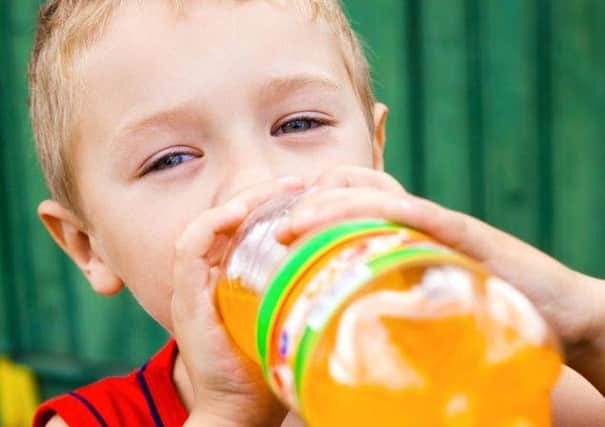Sugar tax ‘could cut number of obese Scots by 20,000’


More than 200 delegates at the Faculty of Public Health (FPH) Scotland conference in Peebles voted for the introduction of a duty on colas, lemonades and other sugary drinks yesterday.
Leading epidemiologist Professor Simon Capewell told the conference that a 20 per cent duty on sugary drinks could reduce the number of obese adults in Scotland by 20,000 each year, and suggested the revenue be spent on children’s services.
Advertisement
Hide AdAdvertisement
Hide AdIn Scotland, around 14 per cent of the daily energy intake comes from sugar, compared to the recommended level of 5 per cent, according to figures from Obesity Action Scotland.
But industry leaders have argued that the idea is “misguided” as sugar taxes have failed in countries such as Mexico.
Prof Capewell, vice president of the FPH, said: “Poor diet causes almost 40 per cent of chronic diseases in Scotland, including obesity, heart disease and common cancers.
“Over half the children in Scotland living in deprived communities already have tooth decay, mostly caused by sugary drinks.
“A 20 per cent duty on sugary drinks would start to tackle this historic injustice and protect the health of everyone, particularly children.”
The creation of taxes is broadly reserved to Westminster, but the Scottish Parliament has been able to create new taxes since 2012 subject to the UK parliament’s approval.
The UK government is under pressure to implement a sugar tax, following recommendations from Public Health England last month.
But Gavin Partington, director general of the British Soft Drinks Association, said: “The efforts by soft drinks companies including product reformulation, smaller pack sizes and increased promotion of low and no calorie drinks have led to a 7 per cent reduction in calories from soft drinks in the last three years.
Advertisement
Hide AdAdvertisement
Hide Ad“The soft drinks industry recognises it has a role to play in supporting public health objectives and welcomes steps to encourage a balanced diet and active lifestyle but targeting single ingredients or products is misguided and unlikely to prove effective.”